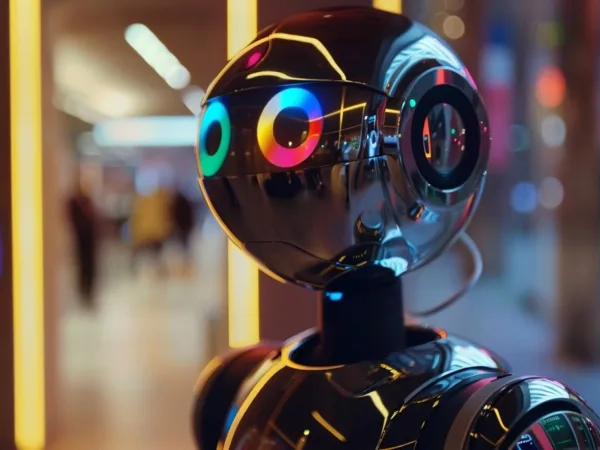
# Exploring the Landscape of Security Workforce with AI: OpenAI’s Voice Engine
## Table of Contents:
– Introduction
– Voice Engine: The Latest AI Model from OpenAI
– Implications for the Spoken Audio Market
– Initial Use Cases of Voice Engine
– Limited User Base and Responsible Deployment
– FAQs
## Introduction
Join us in Atlanta on April 10th and explore the landscape of security workforce. OpenAI, known for its innovative AI models, has recently unveiled its Voice Engine, a powerful tool that can clone human voices with remarkable accuracy. In this article, we will delve into the features and potential applications of Voice Engine, as well as examine the implications of this technology for various industries.
## Voice Engine: The Latest AI Model from OpenAI
OpenAI’s Voice Engine is the result of years of research and development, culminating in a cutting-edge tool that can generate natural-sounding speech that closely resembles the original speaker. By recording a 15-second clip of their voice, users can create a digital clone of their voice that can be used to speak aloud any text input by the user.
The Voice Engine powers OpenAI’s text-to-speech API and features like ChatGPT Voice and Read Aloud. Beyond text-to-speech capabilities, Voice Engine opens up new possibilities for voice cloning, enabling a wide range of applications in the spoken audio market.
## Implications for the Spoken Audio Market
Voice Engine has significant implications for industries that rely on spoken audio, such as podcasting, voice-over work, audiobooks, advertising, and more. The ability to generate personalized voice content, create custom avatars with multilingual voices, and provide non-robotic voices for non-verbal individuals opens up new avenues for creativity and accessibility in the audio space.
The technology also poses a challenge to other companies in the voice cloning and text-to-speech market, pushing them to innovate and adapt to the changing landscape of AI-generated audio content.
## Initial Use Cases of Voice Engine
OpenAI has partnered with various organizations to test and implement Voice Engine in real-world scenarios. Companies like Age of Learning, HeyGen, Dimagi, and Livox are leveraging Voice Engine to enhance their products and services, from educational content generation to interactive feedback for community health workers.
One notable use case is the Norman Prince Neurosciences Institute at Lifespan, where Voice Engine helped restore a brain tumor patient’s speech using an audio sample from her school project videos. These examples demonstrate the diverse applications of Voice Engine across different industries and domains.
## Limited User Base and Responsible Deployment
While Voice Engine showcases impressive capabilities, OpenAI has adopted a cautious approach to its deployment. The technology is currently available to a small group of trusted partners, who are bound by usage policies that prohibit unauthorized impersonation and require informed consent from voice donors.
OpenAI’s emphasis on safety and ethical guidelines reflects a commitment to responsible AI deployment, especially in light of recent concerns around AI voice impersonation. By implementing safety measures like watermarking and proactive monitoring, OpenAI aims to ensure the responsible use of Voice Engine.
## FAQs
### Q: Can anyone use Voice Engine?
A: Currently, Voice Engine is only available to a select group of trusted partners for testing and feedback.
### Q: What are the potential applications of Voice Engine?
A: Voice Engine can be used for voice cloning, personalized audio content generation, language translation, speech therapy, and more.
### Q: How does Voice Engine benefit non-verbal individuals?
A: Voice Engine provides unique, non-robotic voices for non-verbal individuals, enhancing communication and accessibility for this demographic.
### Q: What safety measures has OpenAI implemented for Voice Engine?
A: OpenAI has implemented measures like watermarking and proactive monitoring to prevent misuse and ensure responsible use of the technology.
In conclusion, Voice Engine represents a significant advancement in AI-generated audio technology, with far-reaching implications for industries that rely on spoken audio. By prioritizing safety and ethical guidelines, OpenAI is paving the way for responsible deployment of voice cloning technology in the digital landscape. Join us in Atlanta on April 10th to learn more about the transformative potential of AI for security teams and explore the future of voice technology with OpenAI’s Voice Engine.




















